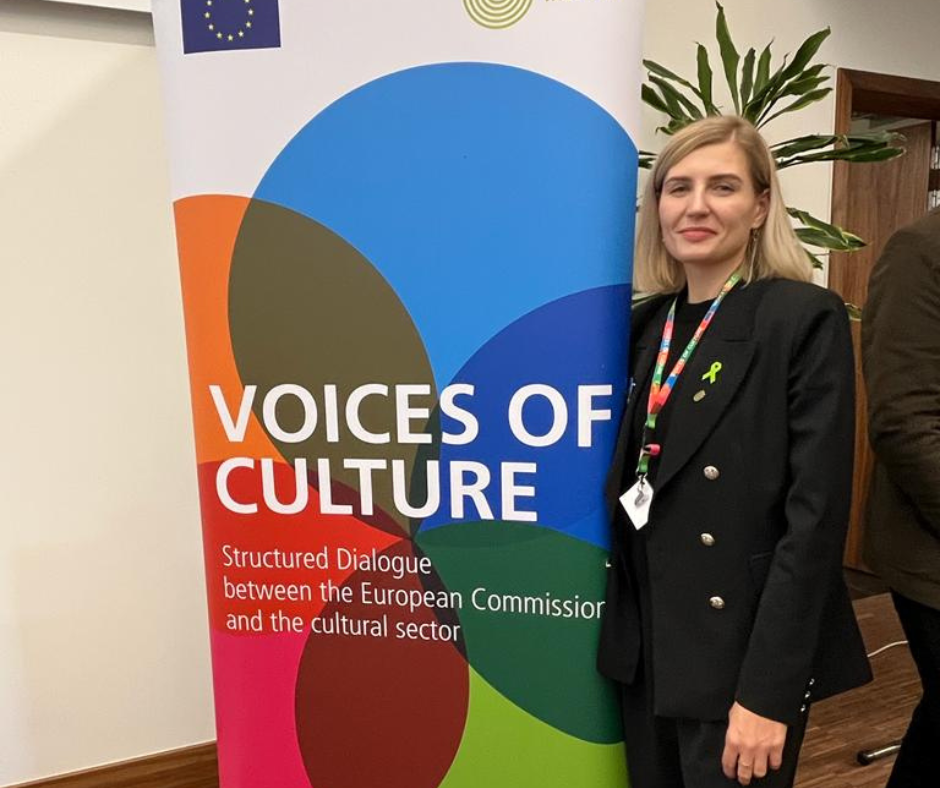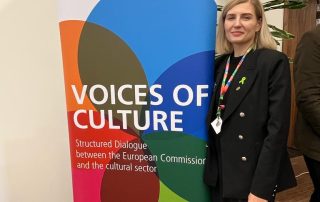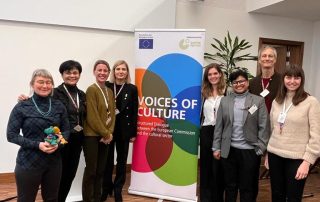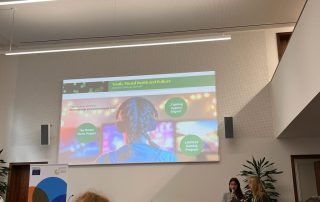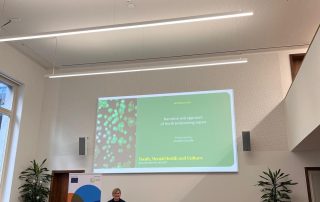The Voices of Culture Brainstorming Report on Youth, Mental Health and Culture has been published. Previously, the project held a brainstorming session in October and a meeting with representatives of the European Commission in December.
The report is the result of the Voices Of Culture Brainstorming Meeting, attended on 4 and 5 October by Irena Chawrilska, PhD, coordinator of CZRUG’s Culture for Sustainable Development programme.
53 representatives from different areas: culture, health, social welfare education and science from 22 European countries came to Brussels to discuss an important topic and challenge for the modern world: the wellbeing and mental health of young people. On 8 December 2022, the report and recommendations of the working groups were presented to representatives of the European Commission.
The publication shows how music, dance, art, visits to museums and cultural centres can help manage and prevent stress in everyday life. Engaging in artistic activities facilitates self-esteem, self-acceptance, self-confidence and resilience. Participating in culture can also help to reduce the risk of developing mental illnesses, such as depression in adolescence.
“This year’s report and meeting with representatives of the European Commission focused on the issue of young people’s wellbeing and the impact that culture has and should have on building resilience” says Irena Chawrilska, PhD. “We tried to show the contribution of the cultural and creative sector to improving the mental health and wellbeing of young people through the example of local and international projects” she explains.
What recommendations and conclusions can be found in the report?
“We have collected numerous examples of interventions that have yielded positive results, especially for underprivileged young people. Above all, however, we have provided recommendations for intersectoral cooperation (health, education, social care, culture) to maximise outcomes, such as social prescribing, which has been adopted in the UK or the Netherlands, involving doctors referring patients to interest groups that support patients in building well-being, for example by singing together in a choir, theatre activities or other artistic activities” says Irena Chawrilska, PhD.
During the December meeting with representatives of the European Commission, participants also took part in the artistic intervention “EU-daimonia – We are just human – flourishing!”, the result of which can be seen in the video:
“It is very gratifying that, as part of the activities undertaken by the Centre for Sustainable Development, the Culture for Sustainable Development programme can also support the achievement of SDG Goal 3 Good health and quality of life” points out Dr Irena Chawrilska. “As part of the Culture (for) Sustainability programme, we have, among other things, carried out a series of debates with school-aged young people and the academic community. We also organised a screening of the film Survive (2021), directed by Jonas Poher Rasmussen, combined with a discussion with experts on migration. It’s time for more activities!” she says.
The activities undertaken at the University of Gdansk would not be possible without the involvement of the entire university community.
“Dance, music, painting, theatre or film clubs are an excellent foundation for interacting with peers and seeking creative means of expressing one’s personality,” adds Krzysztof Szczepaniak, PhD, Director of the Centre for Sustainable Development. “This is extremely important at a time when we are seeing an erosion of the ability to establish direct and positive interpersonal relations. It is extremely gratifying that among the researchers working at the University of Gdańsk there are people who are sensitive to such problems and who are looking for creative ways to overcome them, not only in Poland, but in international cooperation, as evidenced by this interesting report.
The entire report can be read here:
Youth Mental Health and Culture BRAINSTORMING REPORT (download now)


